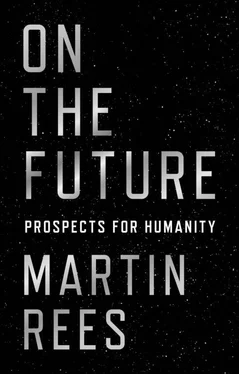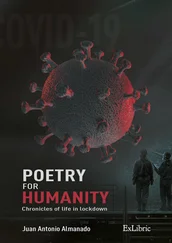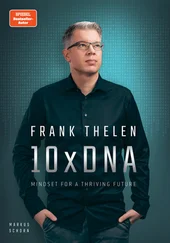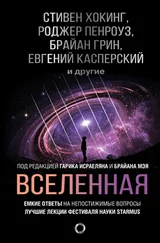The intractable geopolitics and sociology—the gap between potentialities and what actually happens—engenders pessimism. The scenarios I’ve described—environmental degradation, unchecked climate change, and unintended consequences of advanced technology—could trigger serious, even catastrophic, setbacks to society. But they have to be tackled internationally. And there’s an institutional failure to plan for the long term, and to plan globally. Politicians look to their own voters—and the next election. Stockholders expect a payoff in the short run. We downplay what’s happening even now in faraway countries. And we discount too heavily the problems we’ll leave for new generations. Without a broader perspective—without realising that we’re all on this crowded world together—governments won’t properly prioritise projects that are long-term in a political perspective, even if a mere instant in the history of the planet.
‘Space-Ship Earth’ is hurtling through the void. Its passengers are anxious and fractious. Their life-support system is vulnerable to disruption and breakdowns. But there is too little planning, too little horizon scanning, too little awareness of long-term risks. It would be shameful if we bequeathed to future generations a depleted and hazardous world.
I began this book by quoting H. G. Wells. I end by recalling the words of a scientific sage from the second half of the last century, Peter Medawar: ‘The bells which toll for mankind are—most of them anyway—like the bells on Alpine cattle; they are attached to our own necks, and it must be our fault if they do not make a cheerful and harmonious sound’. [9]
Now is the time for an optimistic vision of life’s destiny—in this world, and perhaps far beyond it. We need to think globally, we need to think rationally, we need to think long-term—empowered by twenty-first-century technology but guided by values that science alone can’t provide.
Africa: information technology in, 27, 28, 83, 84; Mo Ibrahim Prize for leadership in, 28–29; papal message resonating in, 34; population trends in, 30–31; solar energy in, 49
aging. See lifespan
agriculture: beginning of, 1; driverless machines in, 92; energy and water used for, 23–24; genetically modified (GM) organisms in, 23, 24–25, 66; internet in developing world and, 84; modern techniques of, 23–25, 84. See also food production
AI (artificial intelligence): airplanes flown using, 93–94; benefits and risks of, 5, 63; concern about decisions by, 89, 116; facial recognition and, 84, 85, 89, 90, 101; game-playing computers, 86–87, 88, 103, 106, 191; gene combinations identified with, 68; human-level intelligence and, 102–8, 119; inorganic intelligences, 151, 152–53, 159, 169–70; iris recognition and, 84–85; jobs affected by, 91–92; machine learning and, 85, 89, 143; now at very early stage, 91; personalisation of online learning by, 98–99; as possible threat to civilisation, 109–10; posthuman evolution and, 153, 178; privacy concerns regarding, 90; responsible innovation in, 106, 218, 219, 225; self-awareness and, 107, 153; self-driving vehicles, 92–95, 102–3; speech recognition and, 85, 88; in warfare, 101. See also robots
air traffic control, 108
Alcor, 81–82
Aldrin, Buzz, 138
aliens, intelligent: communicating through shared mathematical culture, 160, 168; with different perception of reality, 160, 190; early history of speculation on, 126–27; Earth’s history seen by, 1–2; likelihood of, 154–56, 162; possibly pervading the cosmos, 8, 156; search for, 156–64. See also planets; SETI (search for extraterrestrial intelligence)
Allen, Woody, 178
ALMA radio telescope in Chile, 207
AlphaGo, 86–87, 88, 106, 191
AlphaGo Zero, 87
Alzheimer’s disease, failure of drugs for, 212
Ambrosia, life-extension start-up, 80
Anders, Bill, 120
Anderson, Philip, 176
Andromeda galaxy, 178
animal research, ethics of, 221
Anthropocene, 3, 31
antibiotic resistance, 72
antimatter, 169
Apollo programme, 120, 137, 139, 144, 145
Archimedes, 165
Arkhipov, Vasili, 18
Armstrong, Neil, 120, 138
arts and crafts, resurgence of, 98
Asilomar Conference, 74–75
assisted dying, 70–71
asteroid impact: collapse in global food supplies and, 216; existential disaster compared to, 114; on Mars, sending rock to Earth, 129; nuclear destruction compared to, 15, 18; planning for, 15–16, 43; as rare but extreme event, 15, 76
asteroids: establishing bases on, 149; travel to, 148
astrology, 11
atoms: aliens composed of, 160; complexity and, 172–74; as constituents of all materials, 165–66, 168; hard to understand, 195; number in visible universe, 182; quantum theory of, 166, 205
Bacon, Francis, 61
battery technology, 49–50, 51
Baumgartner, Felix, 149
Baxter robot, 106
Before the Beginning (Rees), 186
The Beginning of Infinity (Deutsch), 192
Bethe, Hans, 222
The Better Angels of Our Nature (Pinker), 76
Bezos, Jeff, 146
big bang: birth of universe in, 124; chain of complexity leading from, 164, 214; conditions in particle accelerator and, 111; intelligent aliens’ understanding of, 160; physical laws as a given in, 197–98; possibly not the only one, 181, 183, 184–85 ( see also multiverse)
Bill & Melinda Gates Foundation, 224
biodiversity: loss of, 32–33, 66; our stewardship of, 35
bio error, 73, 75, 77–78
biofuels, 32, 52
biohacking, 75, 78, 106
biotech: benefits and vulnerabilities of, 5, 6; concerns about ethics of, 73–75; concerns about safety of, 73, 74, 75, 76, 116, 218; responsible innovation in, 218, 225; threat of catastrophe due to, 76, 109–10; unpredictable consequences of, 63. See also genomes
bio terror, 73, 75, 77–78
bioweapons of governments, 77
black carbon, reduction of, 47
Black Death, 76, 216
black holes: in center of Milky Way, 124; crashing together, 171; Einstein’s theory applied to, 166, 186; evaporation of, 179; fears about particle accelerators and, 111–12; as simple entities, 166, 173; space telescopes with evidence of, 142
blockchain, 220
Blue Origin, 146
Borucki, Bill, 132
Boston Dynamics, 88
bottlenecks, evolutionary, 155–56, 158
Boyle, Robert, 61–63
brain: basic science needed for medical applications to, 212; chain of complexity from big bang to, 214; complexity of, 174, 176–77; computer simulations of, 190; limits to human understanding and, 189–90, 192–94; mystery of self-awareness and, 193
brain death, 71
brain implants, downloading thoughts from, 105
Breakthrough Listen, 157
Brewster, David, 126–27
Brooks, Rodney, 106
Brundtland, Gro Harlem, 26
Bruno, Giordano, 129
C4 pathway, 25
carbon capture and storage, 51, 58
carbon dioxide in atmosphere, 1, 38–44; cosmic history of carbon atoms in, 123; cutting to preindustrial level, 52; direct extraction of, 59; electric cars and, 47; predicting accelerated increase in, 57–58. See also climate change; global warming
carbon sequestration, 51
carbon tax, 44
care givers, 96–97
Carson, Rachel, 223
Cassini space probe, 142–43
catastrophes: in Diamond’s analysis of five societies, 216; ending all humanity or life, 9, 110–18; global warming and, 40, 42, 57–58; natural threats possibly leading to, 16; need for international planning and, 217, 218–19, 226; worse in interconnected world, 76, 109–10, 215–16
Catholic Church: opposing embryo research, 65; stewardship of planet and, 34–35
Читать дальше


![Мартин Рис - Всего шесть чисел. Главные силы, формирующие Вселенную [litres]](/books/414169/martin-ris-vsego-shest-chisel-glavnye-sily-formir-thumb.webp)









